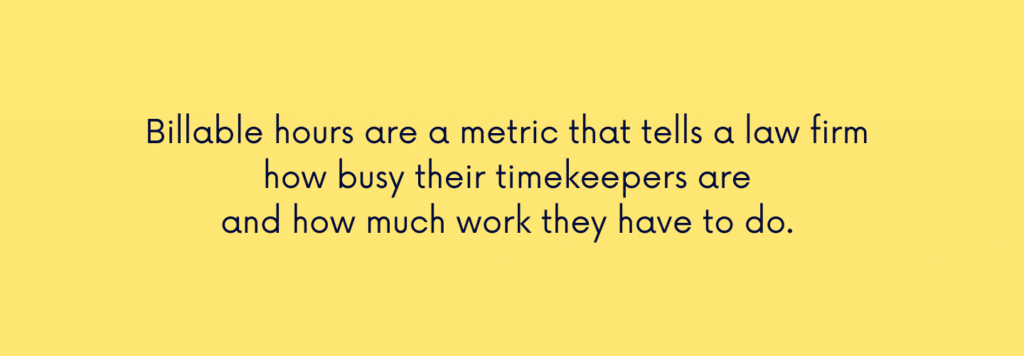Let’s face it, when you work in a law firm, having to enter your billable time can be a drag. I remember those days of having to account for every 6 minutes of my workday.
These key strategies will help you to change your mindset about your billable time.
Strategy 1 - Think about the positive aspects of billable time
If you’re like most people who have a billable hour goal that you’ve been told you have to meet, it can be a source of stress. You have to get your actual work done AND keep track of what’s billable and what’s not billable.
However, let’s shift our perspective and see the positive side of billable hours. It’s not just about meeting a target; it’s about personal growth and achievement.
Here are 3 positives of having to enter your billable time and track your workdays in 6-minute increments:
- You can increase your income potential
- Better job security
- You can increase your future employment opportunities
If you’re new to billable hours and entering your time, here is Everything You Need to Know About Billable Hours.
1. You can increase your income potential
As a revenue generator for the firm, mastering your billable time and your non-billable time can significantly impact your income. Whether it’s through a bonus or a salary increase, the potential for financial growth is real.
While it’s not guaranteed, I can share from my experience as a paralegal manager that those who consistently billed more hours had more opportunities for bonuses and raises.
Regardless of whether you’re working in a restaurant, a retail store, or in a law firm, the more money you make for the company, the more potential you have to make more money.
Some firms have a bonus structure directly tied to billable hours. For instance, if you hit a certain number of billable hours, you receive a corresponding bonus. This is especially common for law firm associates. Even if your annual bonus isn’t directly tied to meeting a billable hour goal, your year-end performance bonus could still be influenced by it.

Remember, it’s called a performance bonus for a reason. It’s not about ticking off tasks from your job description, but about exceeding expectations and going above and beyond. This bonus is a testament to your hard work and dedication, and it’s designed to reward those who consistently perform at a high level.
Consider this scenario: You are required to have at least 1,600 billable hours in a year, and you have 1,625 hours.
The paralegal across the hall from you also has positive performance reviews, but she billed 1,800 hours.
In most cases, that paralegal is likely to receive a bigger bonus.
Why? Because solid numbers and performance reviews provide tangible evidence of your hard work and value to the firm, making it easier for managers to advocate for your recognition and reward.
Know the three key numbers to be tracking if you want to get better bonuses and raises.
2. Better job security
The second reason your billable time matters is increased job security. This is not true for all law firms, but I can tell you that when layoff decisions were made in the 2008-2009 recession, they were based on billable hours, not just tenure.
Why would a firm lay off an associate or a paralegal who’s billing 2,000 hours while keeping the other person sitting down the hall who rarely hits 1,000 hours per year?

If they have someone who is consistently billing 800 to 1,000 hours a year and another person who’s billing 1,800 hours a year. They may assume that the first person doesn’t have enough work to do. Maybe as a firm or a team within the firm, they don’t have enough work to keep all of these people busy and they might need to look at reducing their staff.
3. You can increase your future employment potential
Billable hours affect your future job potential. How?
Many law firm hiring managers will ask about your current billable time requirements in job interviews.
You can expect them to ask something like: How many hours are you typically billing at your current employer? What’s the billable hour goal versus how many hours you actually bill?
Your potential future employers don’t want to hire someone who has worked at a law firm billing an average of 1,000 – 1,200 hours a year when the billable hour requirement at the new firm is 1,800 hours.
Strategy 2 - Remember Your Role as a Timekeeper in the Law Firm
Remember that you are a timekeeper in your organization, not the billing partner. A lot of people who are timekeepers forget that the definition of a timekeeper is someone who accurately records the amount of time spent on a project or thing, or in your case, a client.
Compare that definition to that of the billing partner, whose role it is or responsibility it is to make sure the amount of time billed to the client is appropriate.
Billable Hour Boot Camp
Live webinar series starts on September 23, 2025!
The billable hour course and coaching program to help law firm timekeepers:
✅ Exceed their annual billable targets
✅ Reduce their stress related to billable hours
✅ Write better time entries and reduce write-offs
✅ Get more work done in less time so that they have a better work/life balance
For the only time this year, we’re going live for a 5-part webinar series.
Join Ann Pearson as she gives you practical strategies, real-time coaching, and results-driven insights that you can apply immediately.
SEATS ARE LIMITED! Get yours before the doors close.

As a timekeeper, ask yourself, do you find yourself occasionally rounding down on your time?
Maybe it’s because a 1.0 doesn’t look as good on the bill as a 0.8 or 0.9.
Maybe you were told early in your career to try not to have a .0 at the end of your entry.
Instead of a 2.0, it’s a 1.8, even though you used a timer, and you know you spent exactly 2 hours on that project.
In our Billable Hour Boot Camp, I’ve seen people (associates and paralegals) increase their billable hours by as much as 100+ hours in a year just by shifting their mindset and remembering they are timekeepers.
If you find yourself getting distracted during the day, here are 3 Pro Tips for Paralegal Time Management that will help.
Strategy 3 - Use a timer to track your billable time
Almost every time entry application now has a built-in timer and even if you don’t have one inside the app, then use your phone’s timer. And yet, every day I hear from people who aren’t using a timer to accurately account for their time.
Let me share a perfect example of the difference a timer can make. I was working with a law firm, teaching the Billable Hour Boot Camp live through Zoom calls earlier this year.
Most of their paralegals were not using the timer inside their time entry app. The two who were using the timer coincidentally also had the highest amount of billable time. Or maybe it’s not such a coincidence?
BONUS STRATEGY
Plan for slow times when it comes to your billable hours. We use a Billable Hours Calculator to do that. It also tells you how many billable hours in a year are available to you depending on holidays, vacations, and other days off throughout the year.
Here are some tips for drafting billable time entries.
Meet the Author

Ann Pearson is the Founder of the Paralegal Boot Camp, and host of the Paralegals on Fire! Podcast Show, and passionate about promoting the paralegal profession.
Ann spent 20 years working as a paralegal manager and a litigation paralegal before opening the Paralegal Boot Camp in 2010.
Ann’s training programs focus on adding immediate value to a paralegal’s career and bridging the gap between what a paralegal learns in school and what they actually do on the job.
Visit the About Us Page to learn more about why Ann started the Paralegal Boot Camp.

























